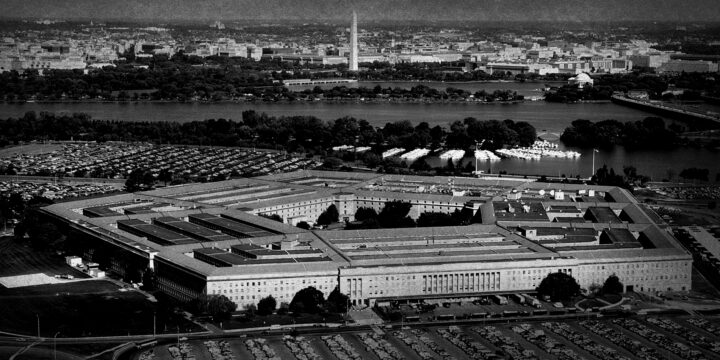August 14, 2024
America will be more secure if it does less

In its final report, released at the end of last month, the Commission on the National Defense Strategy (NDS) had a chance to tackle the Pentagon’s most stubborn but pressing challenge: the failure to prioritize. It squandered this opportunity, however, by recommending a “multi-theater force construct” that requires a larger military, more spending and an increased forward presence in Asia, Europe and the Middle East while still defending the homeland. In other words, the Commission’s more-of-everything prescription punted on arguably the most crucial question it was supposed to tackle.
Even as the defense budget pushes towards $1 trillion, the status quo approach leaves the United States overstretched—involved in unnecessary wars where its interests are limited, and falling behind in Asia, where the stakes are highest. The Commission’s answer to this perennial overcommitment is to double down, with the American public footing the bill through tax increases and entitlement cuts. As attention shifts to what the US defense strategy might look like under a new president, policymakers should not repeat the Commission’s mistake, and instead must lean into the hard but necessary prioritization choices required to align ambitions and resources.
We are currently witnessing the consequences of the US failure to set and stick to national security priorities and its efforts to retain global military primacy. Although the Biden administration defined China as the “pacing threat” and Asia as the most important theater for US interests, it has found itself sucked deeper into the Middle East and Europe, where Washington has large numbers of forces and extensive security commitments, at the expense of its investments in the Indo-Pacific. In Asia, meanwhile, China is taking advantage of a distracted United States, continuing to expand its naval fleet and missile stockpiles, while ramping up gray zone activities in the South China Sea.
The Commission’s multi-theater approach worsens these problems. Even with bigger budgets, trying to meet the demands of homeland defense and global military leadership in three theaters will spread US munitions, military forces, and advanced systems thin for the foreseeable future, leaving the United States underprepared for missions abroad, vulnerable at home, and at risk of defeat in Asia, where it matters most. Efforts to assert US military dominance could fail in other ways as well, including triggering new arms races or alienating countries that are less willing to yield to US preeminence now that they have other options.
More on Western Hemisphere

February 26, 2026

February 24, 2026

Featuring Rosemary Kelanic
February 16, 2026

Featuring Benjamin Friedman and Daniel DePetris
February 13, 2026

Featuring Lyle Goldstein
February 11, 2026

Featuring Daniel DePetris
February 11, 2026
Events on Grand strategy



